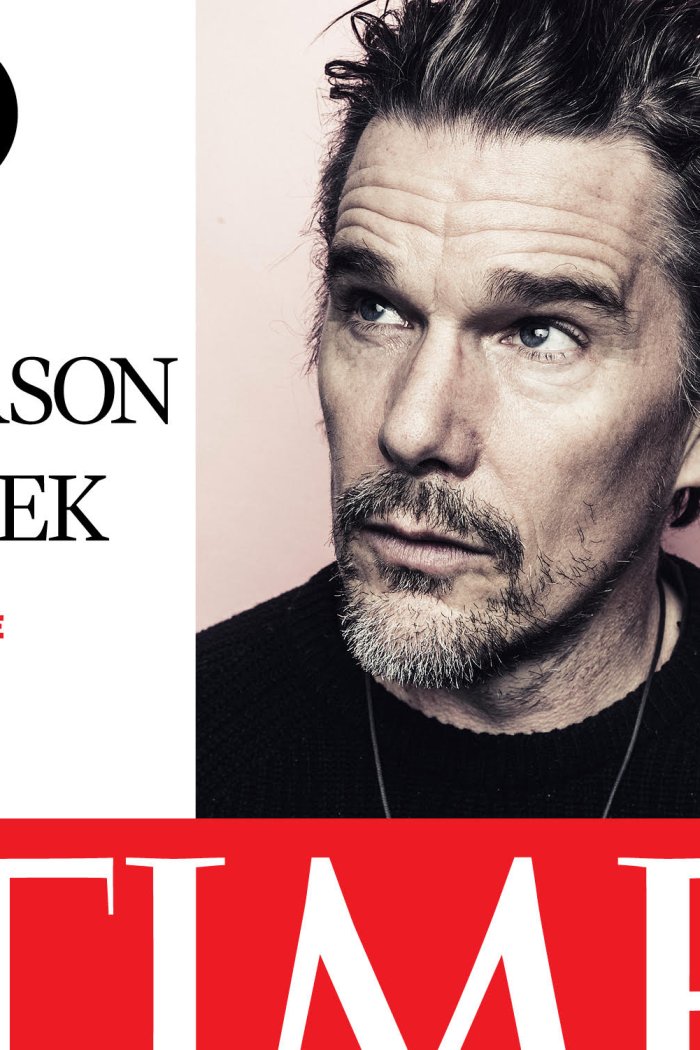Ever since her third novel, Fates and Furies, became a breakout hit in 2015, Lauren Groff has emerged as a singular voice in American fiction. She’s a three-time National Book Award Finalist, has won the Story Prize, all five of her novels have been New York Times bestsellers, and now she’s opening a new bookstore, The Lynx, in Gainesville, Fla. As one of the great novelists of the 21st century, it is no surprise that Lauren Groff is also one of our 2024 TIME100 honorees.
Groff’s two most recent novels — Matrix and The Vaster Wilds– explore themes of nature, spirituality, and utopian communities. Taken together, these works amount to a radical re-examination of how humans adapt to a rapidly changing natural world. Groff’s ability to ask enormous spiritual questions while remaining grounded in specific characters makes her a unique voice in contemporary American fiction.
Fates and Furies is one of my all-time favorite novels, and Matrix is one of the most compelling books I’ve read in years. Which is why I was so excited to have her as a guest on our show this week. During our conversation, Groff and I talked about how her athleticism informs her work, the specifics of her childcare arrangement that allow her to get her writing done, and why time is the secret currency of art.
Tune in every Thursday, and join us as we continue to explore the minds that shape our world. You can listen to the full episode in the player above, but here are a handful of excerpts from our conversation, which have been condensed and edited for clarity.
On how her athleticism influences her creative process:
I think the life of the body is just as important to art as the life of the mind. So I pay very intense attention to the body on a daily basis, not because, you know, I’m worried about weight or whatever. It’s because it’s the way that I regulate my own emotions. It’s the way that I retain focus and attention in the world. It’s the way that I remember the exquisite beauty of the world.
It’s the quality of noticing that happens when you let your mind stop and you let the body take over. And that’s really, really important. The other thing, too, is honestly, uh, I’m really grateful to Title IX because I think my generation, and your generation of women, when we were given the opportunity to play sports, sports became a way of understanding the world, and knowing that everything is practice.
Really it’s not the competition that really matters. It’s the daily, slow incremental growth. And that is directly applicable to any kind of artwork. You’re not doing it for the end product, you’re doing it for the everyday engagements and the hard struggle, to understand what it is that you want to do and to get to the other side. So I genuinely think that sports are magnificent, not for the performance, but for what they give you in the training, in the day to day. Really it’s not the competition that really matters. It’s the daily slow incremental growth.
On the childcare arrangement that allows her to get her writing done:
So I got extraordinarily lucky when I found Clay in college, right? I didn’t know at the time that he was the magnificent, generous, Buddha-like person that he is. We have developed together a way to sort of allow the writing to be almost another human in the family… So time is the secret currency of art, right? The time that you need to just stare at a wall is so vast, that anyone giving you that, that’s a true boon.
We wanted to sit down and make a contract. I wanted to make a contract, an actual physical piece of paper that we wrote down all of the things that, we were separating into our domestic life so that we could protect this time around my vocation of writing.
We have this beautiful contract. It means that I never have to get up in the morning with the children. I never have, other than when they were physically attached to me. I don’t take them to school. I don’t make them breakfast. I don’t see them in the morning. There are no humans for me in the morning other than the humans in the book. And it’s become a very beautiful silent space for for the work to get done…
I do allow the boys to sort of slide back into my life when they come home from school, right? They take center stage. They are the most important thing afterwards. But, there is a kind of, I don’t know if it’s meanness, but it’s a very adamantine pushing away that happens, which is probably not kind or generous in a way that we expect mothers to be kind and generous. I’m not saying that I regret it in any way, but it’s very, it’s very hard. I’m closing my door to my children. So, when they were really little, when they were screaming, I would not go out there. I just let Clay take care of it. And he’s competent. He can do it, right? They can do it.
On how her historical novels explore themes around climate change without specifically mentioning it:
All novels are historical, right? Every novel is a product of the time in which it’s written, even if the writer doesn’t even see that. But I believe in the historical novel a sideways way of getting to examine the present moment in ways that are maybe more interesting, at least to me, than writing about, like, Internet?
But I do want to write about the early seeds of the climate apocalypse that we’re actually going through, right? I really want to write about the deep and urgent moral stakes of being a human in nature, right? And the way that our perceptions of humanity, our understanding that humanity, which has been given to us through every narrative we’ve ever been given out of the Bible, that humans are close to God and everything else is sort of below us. But I really want to change that narrative, right? That narrative is so poisonous and it’s brought us to this point now where we don’t see that a whale has as much right to live as we do, right? Or that even, a hundred year old oak tree is just as beautiful as a human being.
If I’m not engaging with the biggest problem that has ever faced humanity, which is catastrophic climate change, if we’re not engaging with that, what are we doing?
- Cybersecurity Experts Are Sounding the Alarm on DOGE
- Meet the 2025 Women of the Year
- The Harsh Truth About Disability Inclusion
- Why Do More Young Adults Have Cancer?
- Colman Domingo Leads With Radical Love
- How to Get Better at Doing Things Alone
- Michelle Zauner Stares Down the Darkness


